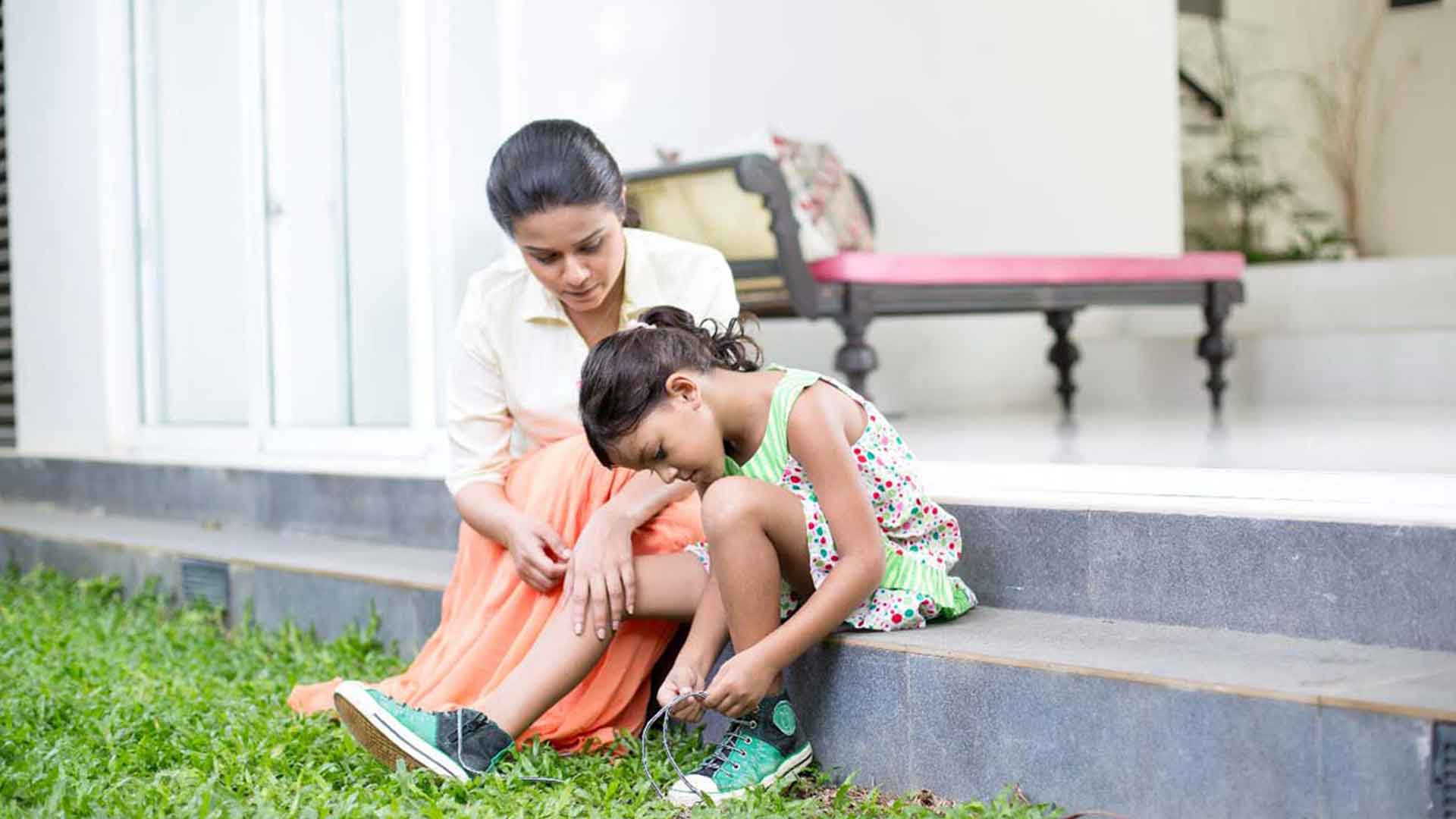























Self-esteem and Resilience – Are they important?

Nimali Buthpitiya

Your child begins to develop his or her personality from the age they can move their bodies and do little things on their own. Development of this specific area becomes more visible and active to a greater extent especially during the ages between three to five years. While nourishing your child with healthy food and providing better education this is also an important time period for you as parents to invest time and effort to feed your child’s personality with most important characteristics. Self-esteem and resilience can be introduced as such two important ‘must have’ characteristics in a child’s personality.
What is self-Esteem and resilience?
Self-worth or overall sense of value a person place on their self is called self-esteem. Resilience refers to someone’s capacity to recover quickly from difficulties. While these two qualities can be easily defined with few words, nurturing of them will take much time and effort.
Why self-esteem and resilience is so important?
In the absence of these two qualities, a child will begin to lack confidence or lose interest in doing new things. He or she will develop a sense of helplessness and a fear of failure. Children with low self-esteem and resilience tend to give up challenges too soon making negative statements about themselves. Certain children may also become socially withdrawn, too bossy (to hide their feelings of powerlessness or inadequacy) or prone to bullies. You are well aware that such behaviors or qualities can actually hinder the well-being of your child if they continue to remain.
How parents can build self-esteem? Hope the following tips would be helpful for you!
- Help children learn and do new things at each age stage
- Focus on the strengths your child has
- Avoid harsh criticism
- Be a good role model
- Praise them wisely for their effort
- Always let them feel that its ok to make mistakes
- Respect them regardless of how old they are
- Listen to their ideas and feelings and acknowledge them
How parents can build resilience?
Build their executive functioning
This involves developing a child’s skills based on cognitive capabilities. By building up on their executive functioning, it helps them regulate their behavior and feelings, and to increase their abilities in problem solving. We can do this by establishing routines, providing opportunities to make simple decisions, allowing developing their own social connections, encouraging thinking and acting independently, playing games that exercise memory including building up supportive relationships around them as parents.
Teach them how to reframe
Reframing is looking at things in a way that produce less stress, offering more control and peace. This will help children deal with difficult situations such as failures, disappointments in life by focusing on the better side of each situation rather than the opposite. As an example, you can teach them to acceptsimple problems they face in life as opportunities where they can learn to become strong rather than worrying or being fearful.
Support your children to face fears they have
Help children to face certain things that they fear in life without avoiding them. Fear of darkness, fear of insects or even fear of failure may open a door for you to make your child an overcomer! But it is vital that they know they are protected and surrounded by your love and support.
Nurture a growth mindset
Tell your child when he or she encounters tough situations in life, that there is always an opportunity to grow and face them much better the next time when they reoccur. Parents should also make them learn that situations in life do not stay the same forever. When your child begins to practice this way of thinking, they develop a life full of unshakable hopes which are undependable of circumstances in life.
Children with positive self-esteem feel confident and capable. They value themselves and their abilities. They take pride in what they do and strive for the best. When resilience is developed, children become overcomers; they not only welcome success, but also use failure to grow and become strong. Parents who are supportive and realistic in their expectations are more likely to take their children a long way in this beautiful journey!
Share With:
Recommended Articles


Siblings Rivalry and Friendships
“...the sibling bond can be a thing of abiding love. Our parents leave us too early, our spouse and our children come along too late. Our siblings are the o...
Read More

Teaching your child to live with a heart of gratitude
We all agree with the idea that, parents hold the greatest responsibility in nurturing a sense of gratitude and respect within a child. Similarly with other...
Read More

Standing Strong Standing Alone
Developing Independence in Toddlers Until your toddler begins to walk s/he cannot move around independent of help – once toddlers start walking they are ...
Read More